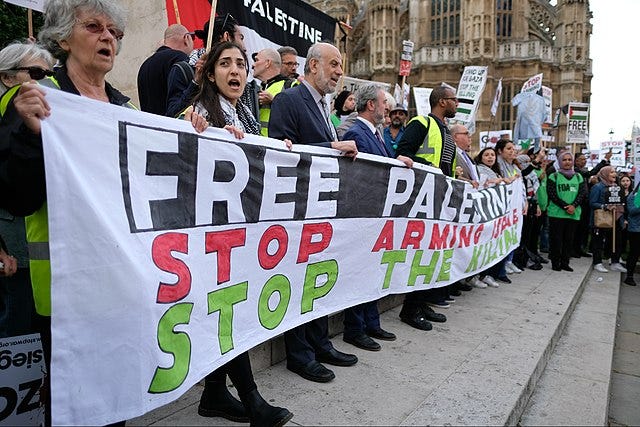Dreams and illusions in the Middle East
Yet another war erupts between Israel and Palestinians, laying waste to wishful thinking
Just a few months ago, a lot of Washington policymakers and even some thinkers in the Middle East thought the core of the Middle East’s problems—the nearly 75-year dispute between Israelis and Palestinians over the eastern Mediterranean—had been put aside, or at least whittled down to a manageable nuisance that could be all but ignored while American-backed regional powers such the United Arab Emirates and Saudi Arabia brokered deals and improved ties.
How wrong they were.
I’m not a specialist on the Israeli-Palestinian conflict. But over the last couple weeks I’ve written a few pieces on the topic that explore the theme of what the explosion of violence between Israelis and Palestinians in Jerusalem, the West Bank, the Gaza Strip and Israel itself might mean for the region and the world.
We are asked to write regional “reaction” pieces to big news events. In a May 12th piece, I described how the various actors in the region were positioning themselves and how any hopes by both Arab regimes and Western leaders to put the Israeli-Palestinian conflict on the back-burner had been quickly dashed. “The conflict has now escalated to the point where it cannot be ignored,” one scholar told me.
In a piece I wrote on May 16th, I examined the culpability of the various actors in the conflict, and how few players behaved honorably, though there were some heroes.
‘By and large, however, the most important players in the ongoing conflict have performed abysmally. Chief among the culprits is Benjamin Netanyahu. He did not create the Arab-Israeli conflict, nor the Jewish claim on East Jerusalem’s Sheikh Jarrah neighbourhood which sparked the latest round of violence.
But Bibi has been Israel’s prime minister for the last 12 years, and 15 years of the last quarter of a century. For better or worse, he has shaped contemporary Israel. And during that time, he allowed for and encouraged encroachments on Arab properties in Jerusalem, the West Bank and Israel proper as well as a deterioration of rights of Palestinian rights.’
Just a few days later, I wrote a piece describing the phenomenon of those countries such as the UAE, Bahrain, Sudan, and Morocco that had signed normalization agreements with Israel having second thoughts, and potentially backing away. “There is a huge gap between the interim government and the street,” Andreas Krieg, a Middle East specialist at King’s College, told me.
After the ceasefire deal between Israel and Hamas was brokered, I wrote a piece about the lessons learned from the conflict. They include the fact that the Israeli-Palestinian conflict is getting more violent, more destructive and more destabilizing globally, and that neither Israel nor the Palestinians—nor the Americans or Europeans have a solution.
So what’s the way out?
‘There are international mechanisms to deal with this ongoing and potentially explosive crisis. If Israel, Hamas, and other parties to the Israeli-Palestinian conflict are unable or unwilling to adhere to international norms in their conduct of war, they should be investigated and prosecuted. The International Criminal Court has already moved to begin investigating alleged war crimes committed by both Israel and Hamas.
There are already numerous Security Council resolutions calling for an end to the Israeli occupation of Palestinian lands. They are not enforced because of the US and its allies. They pay lip service to the cause of a Palestinian state. But they refuse to allow any enforcement mechanism to take hold. That would mean statements of condemnation of Israeli violations of law, sanctions, and asset freezes on properties connected to illegal settlements. It would mean withholding arms sales to Israel, and refusing to do business with entities that contribute to the occupation.’
Thank you for reading.

